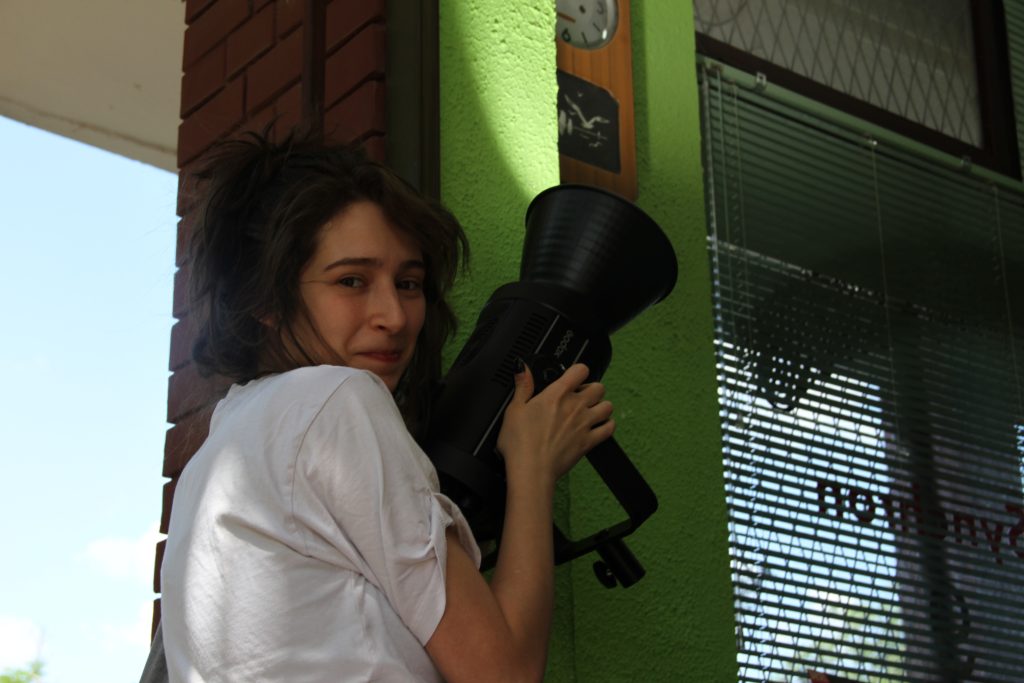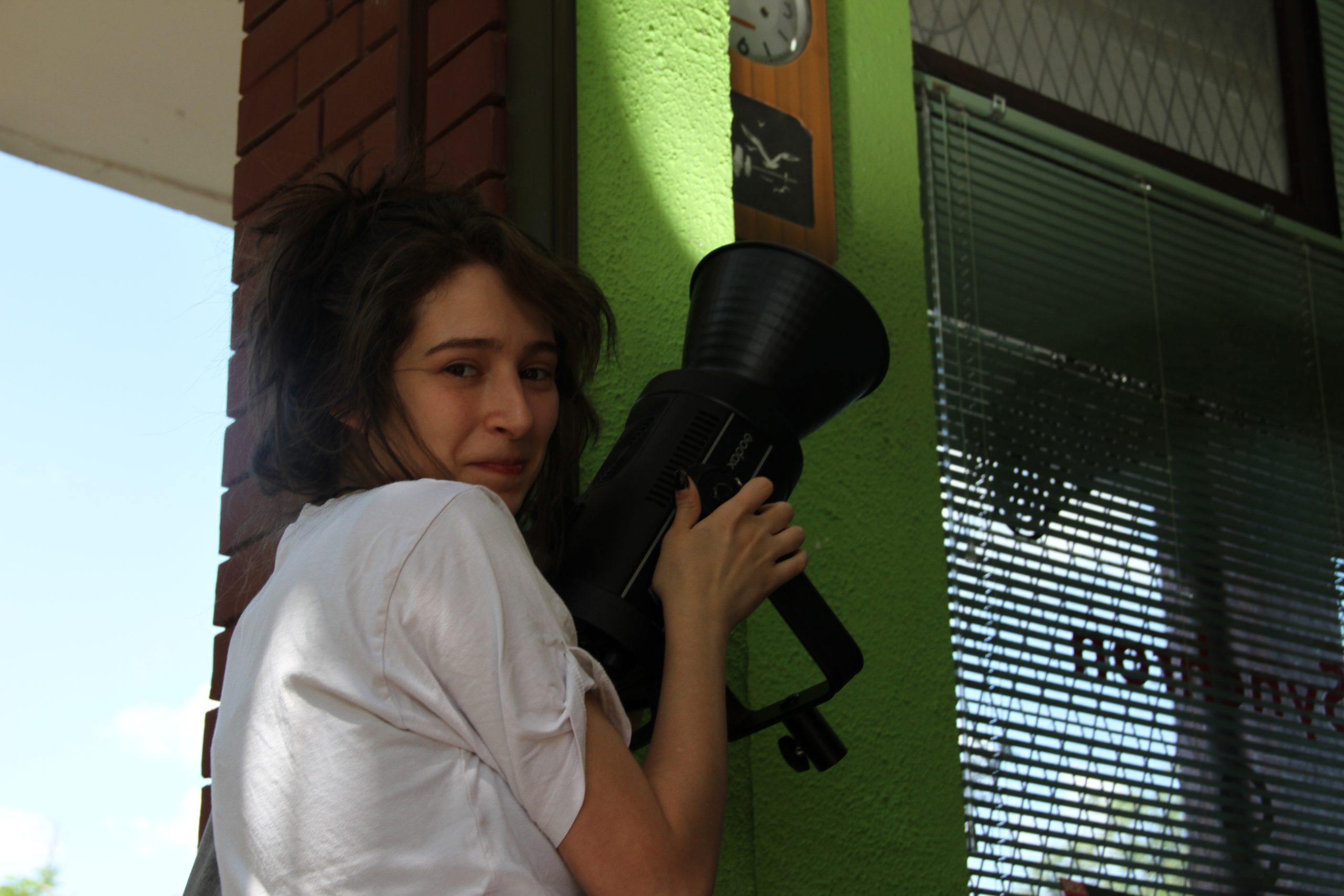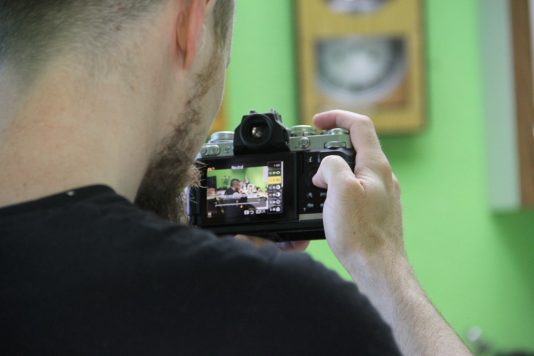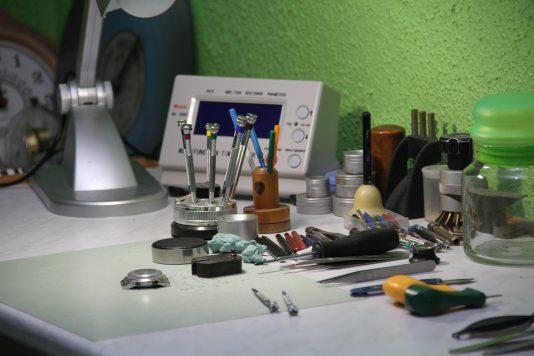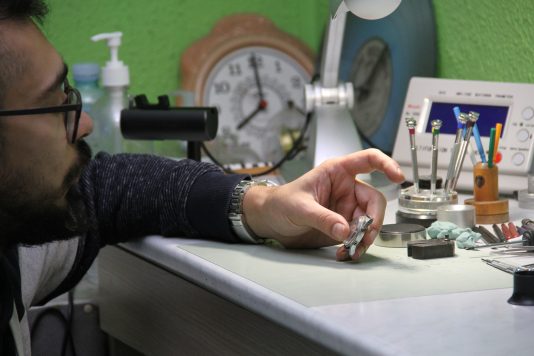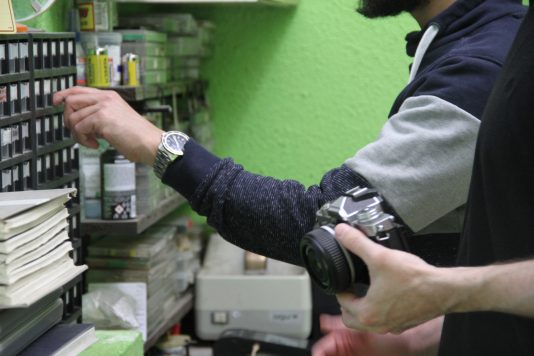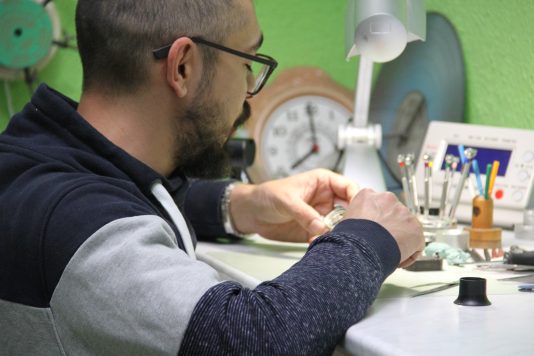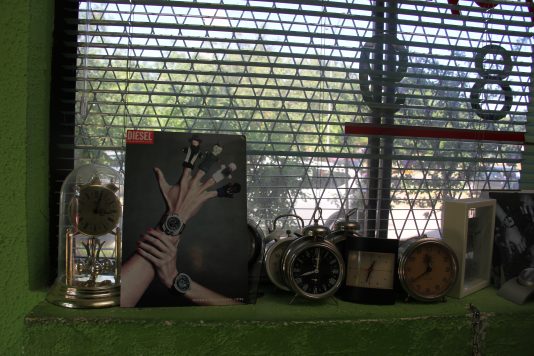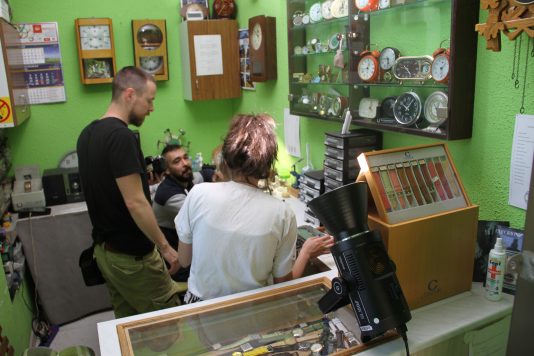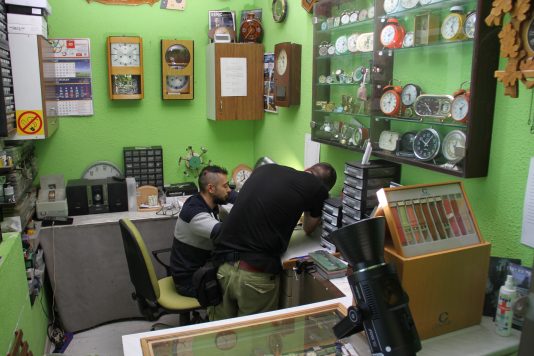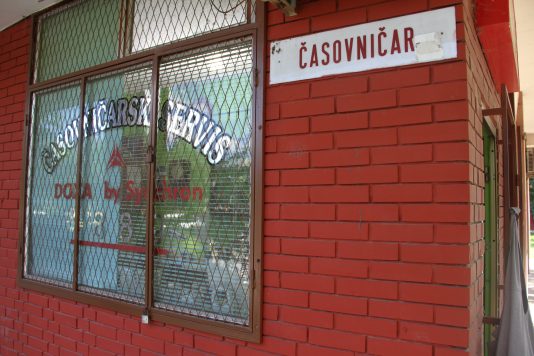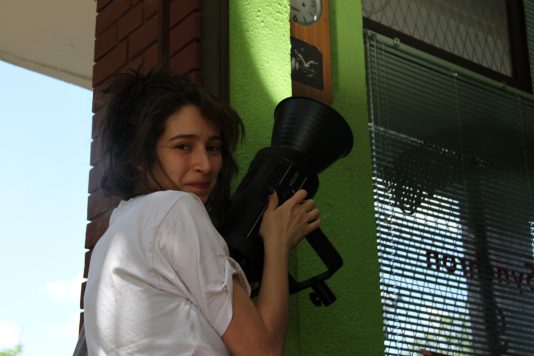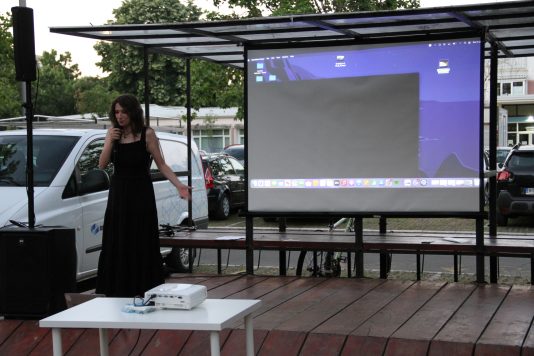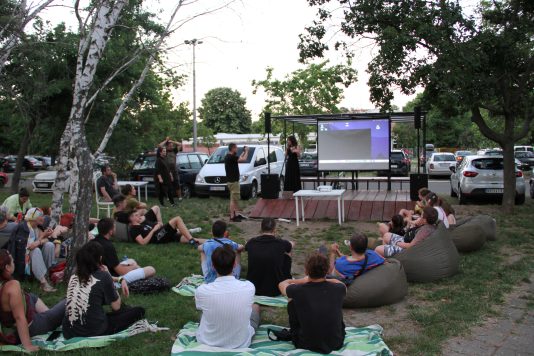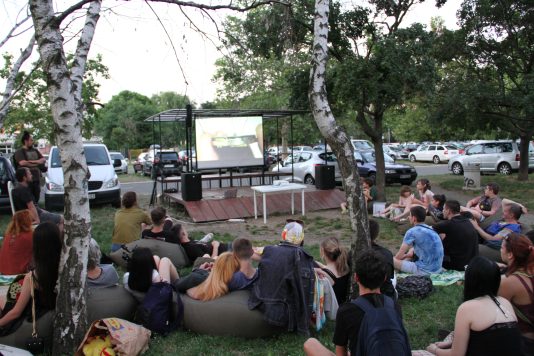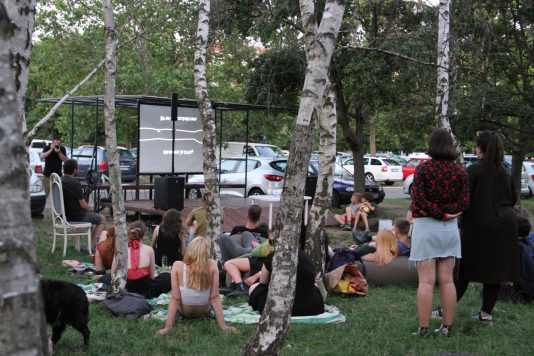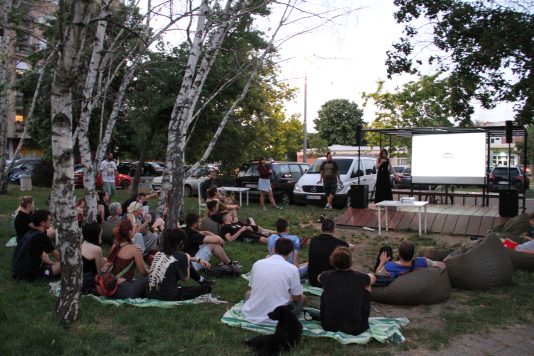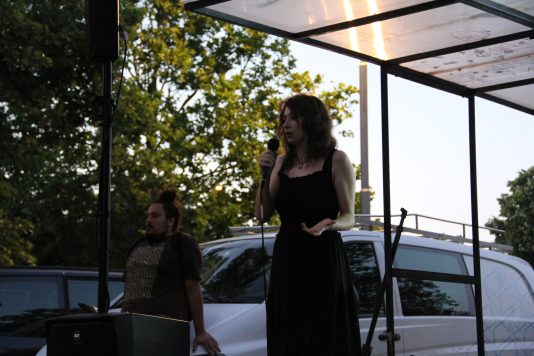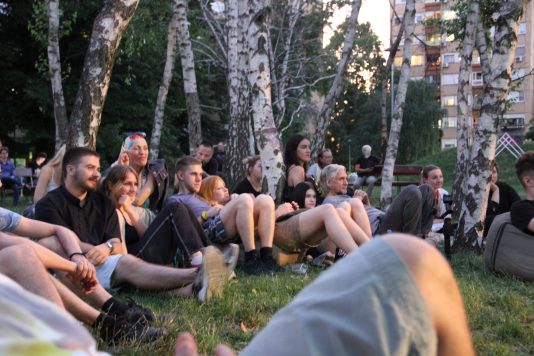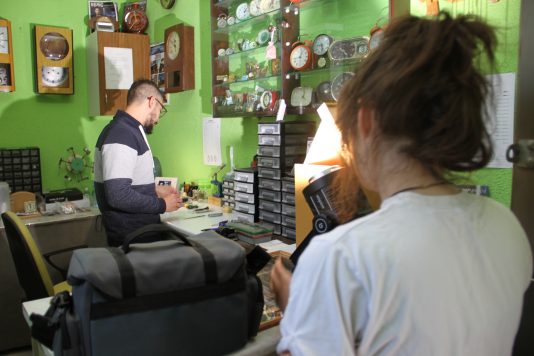Tamara Kostrešević
“Do You Feel the Passage of Time?”
During last year’s residency, representing the experimental research phase of the New(Un)discovered Spaces project, we observed that Novo Naselje is home to numerous small entrepreneurial ventures, primarily family businesses and the sole source of income for many families. Most of these businesses face the challenge of competing with hypermarkets, ubiquitous in the area, offering similar products at lower prices. This situation places small entrepreneurs in unfavorable conditions, reducing their visibility and, consequently, their profits. The entire work process during the project aims to bring the qualities of these employers closer to the Novo Naselje community and highlight the benefits that the entire community reaps through their survival.
Art and economics initially seem like distinct and incompatible fields. However, in reality, these two domains are often intertwined in various ways. Besides the apparent connection reflected in the commercialization of artistic works and the profit for artists or the city and state due to increased tourism from attractive artistic landmarks, these two fields interlace on more complex levels.
Socially engaged art in the entrepreneurial sector can stimulate various changes in society. By creating new business models focused on solving social problems within the Novo Naselje community, such as a lack of unity, forgotten values nurtured by the community, and micro-problems that create dissatisfaction, these models can create new market niches, fostering innovation and societal improvement.
In short, art and economics are two interconnected fields that can operate in different ways, from commercial activities and inspiration to job creation and cultural development, to mutual exchange between these two fields and mutual benefits. The Novo Naselje entrepreneur community is largely composed of middle-aged individuals, and their ideals heavily rely on the socialist regime of Yugoslavia and nostalgia for times of community and when such businesses had additional value.
Socially engaged art can contribute to entrepreneurship by creating new business models, initiating artistic projects that encourage social change, and improving corporate responsibility. The creative approach and innovations brought by artists can stimulate entrepreneurial spirit, enhance existing entrepreneurial activities, connect individuals, and contribute to the creation of a community atmosphere.
This project aims to identify crucial issues within the small entrepreneur community of Novo Naselje and, through various artistic practices, shed light on these issues, thus contributing to their visibility and resolution. This approach increases the awareness of Novo Naselje residents on given topics, encouraging their active involvement in the cultural life of the city and critical thinking. Additionally, by merging these two fields, we create a new audience for contemporary artistic practices. Through collaboration with entrepreneurs, we contribute to their increased visibility, networking with other entrepreneurs and citizens, thus contributing to the development and stability of their businesses.
Calling on relevant authorities for greater responsibility is another aspect that the fusion of art with local entrepreneurship can impact. Artistic projects that transparently address current community issues can contribute to creating awareness about the active role that authorities can play in resolving market monopolization problems and taking measures to simplify and facilitate entrepreneurial endeavors.
The residencies in 2023 aim to portray entrepreneurs as individuals, presenting them to the neighbors of New Settlement not only as businesspeople providing services, but also as their neighbors who play a significant role in the community and can contribute greatly to its well-being.
Tamara Kostrešević’s experimental film, “Do You Feel the Passage of Time?,” serves as a poignant commentary on the pervasive impact of capitalism on our current reality. The film’s simplicity in form, marked by fluctuating visuals and stark yet impactful captions, becomes a canvas through which Tamara delves into the global issues that envelop us. At its core, the narrative unfolds from the vantage point of a watchmaker, whose craft symbolizes the passage of time – a paradoxical journey into the very temporality that challenges his profession.
The film emerges as a socio-cultural introspection, skillfully portraying the inheritance of the watchmaker’s trade from his mentor. Tamara weaves a compelling narrative, not just of personal chronicles, but of the broader societal narrative. The watchmaker’s dwindling trade in Serbia becomes a metaphor for the endangered craftsmanship grappling with the pressures of global production, consumer culture, and the fast-paced contemporary lifestyle. In this context, Tamara lays bare the paradoxical relationship between time, the artisanal craft, and the relentless march of progress.
Tamara’s lens sharpens the focus on the disappearing art of watchmaking in Serbia, a craft now endangered by the ease of acquiring new, inexpensive timepieces in our consumer-driven society. The film thus invites viewers to reflect on their own relationship with time, questioning the societal shift from repairing and preserving to the prevalent culture of discarding and replacing.
The experimental nature of the film transcends conventional storytelling. Tamara engages with her audience, not merely as passive spectators but as introspective participants in a shared temporal experience. The film provokes contemplation on the societal implications of our choices – choices that may seem insignificant on an individual level but collectively shape the destiny of crafts, cultures, and our broader human narrative.
“Do You Feel the Passage of Time?” is not just a film; it’s a social commentary, a call to collective introspection. Tamara Kostrešević skillfully employs the medium of experimental film to navigate the intricacies of time, tradition, and societal evolution. As a curator, one cannot help but applaud her ability to transcend the boundaries of traditional narrative, compelling us to confront the often-overlooked consequences of our modern way of life. The film becomes a poignant reminder – a testament to the fragility of our cultural heritage and a challenge to reevaluate our role in the relentless passage of time.
Curatorial text by Sara Dedić
